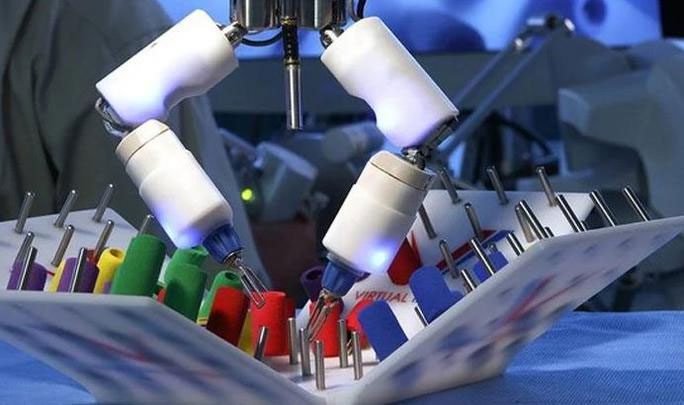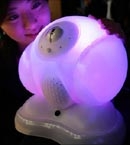MIRA Surgical Robot is an advanced surgical system supported by miniature robots (RAS) that can move within the body, intended for deployment at the International Space Station (ISS).
Professor Shane Farritor and his colleagues at the University of Nebraska-Lincoln (UNL) and the technology company Virtual Incision have developed MIRA with the primary goal of serving future interplanetary missions.
These missions will require astronauts to stay in space for extended periods, such as NASA’s plans for lunar and Martian exploration, which aim for several months of habitation.

Close-up of a hand from the MIRA “surgical robot” recently revealed by researchers – (Photo: UNL)
Moreover, more ambitious plans for space colonization have been considered by space agencies, private space companies, and scientists, including “vacation” trips to space or even long-term living arrangements.
This presents numerous challenges, including the ability to provide medical services, especially for complex procedures, such as surgeries that on Earth require collaboration among multiple specialties or inter-hospital coordination.
Therefore, the plan to create a “interplanetary surgical doctor” using robotics has been initiated with a $100,000 grant from NASA.
MIRA is a versatile machine. Like other surgical robots, it can still be operated by a surgeon on-site, but it optimizes direct surgery techniques, as MIRA’s instruments include RAS that can be inserted through small incisions, enabling surgeons to perform minimally invasive procedures, thereby enhancing safety in a space environment lacking extensive medical support, unlike on Earth.
Additionally, this technology could facilitate remote medicine. On Earth, this technology has been successfully tested to assist surgeons in performing remote surgeries for individuals in areas lacking medical services, where the surgery requires more specialized doctors than the available medical personnel.
However, MIRA technology has the added benefit of being able to perform operations autonomously, meaning that astronauts on the Moon and Mars could receive medical care without the presence of a surgeon.
In August 2021, MIRA successfully assisted doctors in conducting the first remote surgery as part of a clinical study under the Investigational Device Exemption (IDE) program from the U.S. Food and Drug Administration (FDA). The patient, a member of the naval forces, underwent a partial colon resection through a single incision.
In the coming year, the deployment of MIRA to work on the ISS will be implemented.




















































